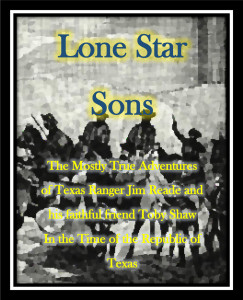We wanted a bit of a holiday, and to get away from the house and the usual jobs for a bit. My daughter wanted to hit up Herweck’s in downtown for some specialty paper for her origami projects. Herweck’s has a lovely stock of interesting papers; in large sheets, which may be cut to size for her origami art projects. I wanted to take some pictures downtown, and we both thought positively of a late lunch at Schilo’s Delicatessen and then … well, to whatever curiosity took us. We were tempted at the outset by a ere was a huge anime convention going on at the HBG convention center, which counted for the large numbers of … interestingly dressed people wandering around. As my daughter somewhat cuttingly remarked, after observing a herd of costumed anime fans, “Too many freaks, not enough circus.” Still, having acquired a taste for this sort of thing when we used to go to the science fiction convention in Salt Lake City when I was stationed in Utah, we thought we might check out the convention, if the price of entry was not too much out of budget. It was too much, as it eventually turned out, and neither of us was into anime sufficiently to properly appreciate the experience … But after walking back from Shilo’s along Market Street, we happened upon the Briscoe Western Art Museum, which was housed in what used to be – so we were assured by the young woman manning the desk – the old downtown public library building.
This was a wonderful construction of 1920s Moderne, newly spiffed up, and the foyer was marvelous. This was a two-story confection with a deeply coffered carved wood ceiling and a band of designs resembling the buffalo and Indian-head nickels around the walls just below the ceiling – all marvelous and detailed. A visit to a building like this once again reminded me of how much I detest and despise the horrid brutality of modern design for public buildings – lean and spare and square, with windows that can’t be opened, no ornamentation of any sort at all, save a stark open square with a concrete turd in a fountain in the middle of it. No, my detestation of modern architectural design of the Bauhaus steel-and-glass-box or concrete-n-glass variety remains undimmed and burns with the white-hot passion of a thousand burning suns … and as it turned out, the entry fee to the Briscoe was a relative pittance, and further reduced by a veteran discount. So – there was a far more economical use of funds and time.
The art on display is of course oriented to the west – lots of scenic vistas, longhorns, cowboys and the like, but leavened with a series of Curtis photographic portraits of Indians, some scenic vistas of border towns, and of the construction of Boulder Dam. As for big-name Western artists, the Briscoe has a small C. M. Russell bronze, and a couple of minor pieces by Frederick Remington, which to my mind is not very much at all, as far as the classic Western artists go. Most of what is there is in the way of art seems to be on loan from local donors and collectors – and it is a rather newish museum after all. Many exhibits are – not strictly speaking – art, but rather historical relics; a classic Concord stagecoach in one gallery – and a renovated chuck-wagon in another. The third-floor galleries had the most interesting items – antique saddles, including one adorned with silver rattlesnakes; once the property of Pancho Villa, and another which once belonged to the Spanish Viceroy in Mexico City. There is also a gallery dedicated to the Alamo – which is only to be expected. It is dominated by one of those elaborate models of the moment when the Alamo was overwhelmed by General Lopez de Santa Anna’s forces – about which I had a small quibble, and another item which raised more questions than the duty guard could answer. (The poor chap is probably curled up in a corner somewhere, quivering.)
This item is a Victorian hair brooch, one of those peculiarly Victorian things – a small lock of hair, made unto a piece of jewelry – usually woven into a pleasing pattern, and preserved under glass in a small setting. They were most often done in order to memorialize a deceased loved one … and this one was supposed to have been … well, the card next to it was singularly uninformative. OK, first of all – was it James Fannin’s hair? Several different alternatives; yes, his – a brooch left with a dear one, after his taking up the position of commander of the Goliad in late 1835. Likely. But his, post-mortem, after the massacre of his company and done after his body lying where it had been left for weeks and weeks? Ooooh – no, don’t think so.
Anyway, we had an interesting time discussing this with the duty guard; it’s true that docents and guards often know rather interesting things about the galleries where they are stationed, often because everyone is always asking them, and being able to give a good answer must be a kind of self-defense. Apparently, he and some of the other guards believe that the Alamo exhibit room is haunted. My daughter says that if any object in that room has the ability to haunt, it would be the gigantic iron 18th century cannon, which was supposed to have been in the Alamo, although if it had any part in the siege, no one knows. It looks like an 18-pounder, and was found buried on private property sometime in this century, so the guard says; the man whose property it was just set it up pointing at his mailbox. We speculated for a while on how it could have finished up buried in the ground, a thing which would have taken at least three ox-teams to move. At the time that the Alamo was the main Spanish presidio in Texas, it was supposed to have had the largest collection of artillery west of the Mississippi and north of the Rio Grande. After Santa Anna’s defeat at San Jacinto, likely the Mexican garrison left to hold the place bugged out with everything they could carry with them. We thought it likely that this particular cannon was dumped, either immediately or after a short distance. The information card at the exhibit offered very little detail – so we had our amusement from speculation.
And that was my bit of a summer holiday – yours?



Recent Comments